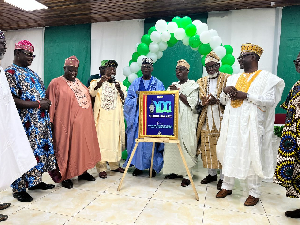Rachel Appoh, a former Deputy Minister of Gender, Children and Social Protection, has said the passage of the Affirmative Action, Gender Equity Bill 2024 is refreshing news and a major boost in the fight against gender inequality and addressing socio-cultural practices inimical to the progress of women and children.
Speaking to GhanaWeb, Rachel Appoh commended Parliament for passing the bill, which had been before the house for over two decades.
Rachel Appoh also extended her commendations to successive ministers at the Ministry of Gender, Children and Social Protection for their incredible role in ensuring the passage of the bill.
Rachel Appoh, who was the Member of Parliament for the Gomoa Central Constituency in the sixth Parliament of the Fourth Republic, stated that the Affirmative Action Bill was her pet project and she dedicated time and resources to ensuring its passage.
Unfortunately, however, the bill could not see the light of day before she left Parliament, but she remains grateful to the various Civil Society Organizations, MPs, and stakeholders who contributed immensely to the shaping of the bill.
She is hopeful that the passage of the Affirmative Action Bill will facilitate the fight for equality and improve the welfare of Ghanaian women.
“The Affirmative Action Bill has been in Parliament since the era of President John Agyekum Kufuor, so to finally see it being passed is refreshing and great news for me and all women in the country. When I was in Parliament, I worked with some great persons to lobby and push for the passage of the bill, but despite the significant progress we made, we couldn’t get it over the line.
“I want to use your platform to thank Parliament and all the current and former ministers who worked on the bill because it took a lot to get here. Passing this bill is great for Ghanaian women and children, and I hope that it will mark the start of something great for our women,” she said.
The Affirmative Action, Gender Equity Bill 2024 aims to effectively address social, cultural, economic, and political gender imbalances in the country.
These imbalances stem from historical discrimination against women and persistent patriarchal socio-cultural systems and norms.
EK
General News of Friday, 2 August 2024
Source: www.ghanaweb.com













